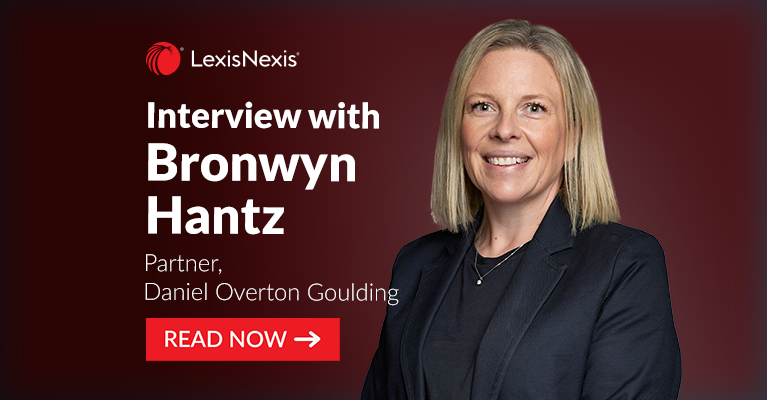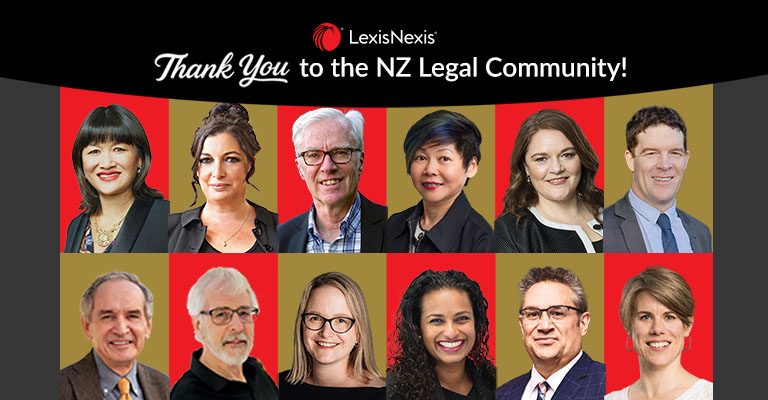Summary The empathy advantage From server to cloud Competing with larger machines The Ferrari and the potholes The enduring powers problem The constant foundation Originally published...
Summary The year legal AI became real Voices shaping the profession A year worth remembering Contributors 2025 There's a curious phenomenon about how we experience time. When our days are...
Summary The problem with platform hopping How the models differ Security without compromise Beyond legal research The speed of adoption Originally published by NZ Lawyer . Republished...
Summary Introducing Protégé General AI General AI Models Available in Protégé for New Zealand Legal Workflows Practical Use Cases for Lawyers But as AI becomes more common in legal practice...
Summary The efficiency revolution Levelling the playing field Managing the transition carefully Specialised practice applications The evolution of legal service delivery Maintaining quality...

Summary
- Starting at the beginning can be trickier than you think
- Indigenous judging versus indigenous judges
- Technology and traditional knowledge
- Cultural immersion, legal learning, tradition versus modernity
- Building lasting connections
Originally published by NZ Lawyer. Republished with permission.
Kirikiriroa/Hamilton will host an unprecedented gathering next weekend as indigenous judges from across the globe converge for the International Indigenous Judges Conference. The three-day event, running from 24-26 October at the University of Waikato, marks the first-time judges from Canada, the United States, Australia, Pacific Islands and New Zealand will collectively examine what it means to judge through an indigenous lens.
As the brainchild of Justice Joseph Williams, the first person of Māori descent appointed to the New Zealand Supreme Court, and Justice Michelle O’Bonsawin, the first indigenous Canadian appointed to the Supreme Court of Canada, the conference aims to build ties between indigenous benches across the globe and to develop them over time, but also pose questions that extend beyond the courtroom.
“In short, the conference is about building global judicial relationships, whereby indigenous legal issues can be discussed, compared and contrasted amongst indigenous judges with different ideas and experiences…” Judge Aidan Warren of the Māori Land Court told NZ Lawyer recently.
Starting at the beginning can be trickier than you think
Judge Warren spoke about some discoveries made as he approached some of the issues the conference will cover. He felt a logical place to begin as a representative of the host country was to ask, who was our first Māori judge and who were our Māori judicial pioneers. These questions, Warren said, are consistent with the whakatauki: Haere ki mua, Haere ki muri (walking backwards into the future)
As an old boy of Te Aute College, Warren had been instilled from an early age with tales of the pioneering achievements of the first Māori to be admitted as a lawyer, Sir Āpirana Ngata. After research and inquiry with other senior judges, there was no clear answer to the question of who the first Māori judge was.
Determined to avoid a situation where New Zealand could not answer such a seminal question on home soil, Judge Warren, Justice Layne Harvey, and research counsel from the Māori Land Court came up with the idea of publishing a short research paper into the matter, in partnership with LexisNexis who have played a key role by gifting the resulting publication, "Ngā Kaiwhakawā Māori - A brief history of Māori Judges”.
“We thought we'd investigate that, put it in writing, and acknowledge at the same time, our judicial pioneers, a roll call of all Māori judges if you like,” said Warren. “[The idea is] to give the book as a gift to our international visitors, but equally, to acknowledge those individuals who have paved the way for the responsibility of judicial office that we enjoy today and to hear from some of them in their own words about the challenges and opportunities of being an indigenous judge.”
One serendipitous discovery was Judge Harold Carr from Wairoa, a Māori judge appointed to the Native Land Court in 1923 – exactly 100 years before Warren and the team began their investigation – and the person that gets the vote as being ‘the first’ judge with Māori whakapapa.
But this finding comes with an asterisk, and an acknowledgement that the very concepts the authors were searching are fluid and subject to interpretation across the years.
"It raised a whole lot of questions around, what is a judge? Who is a Māori? For example, were the many Māori appointed to the early colonial courts considered judges?” These questions and more are addressed in the book.
Indigenous judging versus indigenous judges
The Hamilton conference will tackle what Warren identifies as an always present paradoxical question facing indigenous jurists: the distinction between being an indigenous judge and judging indigenously.
"Are we judges who judge indigenously, or are we just judges who happen to be indigenous?" Warren asked. "There is a clear distinction between the two, but do we know what that distinction is? We are all indigenous by virtue of our whakapapa, but are we judging any differently as indigenous people, if not, should we be? More fundamentally, what does it mean to judge indigenously?”
Considering and debating such questions in more depth will make for better judging, Warren believes.
“For our local Māori and Pasifika judges the conference will allow us to hear from experienced international judges on how they have approached their roles in all areas of the law, family, criminal, environmental and economic development.”
Technology and traditional knowledge
The conference arrives as artificial intelligence reshapes legal practice, raising concerns around indigenous data sovereignty and traditional knowledge protection, among others. Warren acknowledged both the promise and perils of legal AI.
"Data sovereignty is a live issue in the Māori world with legitimate concerns about who is controlling it, and whether its widespread use is consistent with aspects of tikanga Māori." Warren said. However, he noted practical benefits: "The efficiencies it could create to reduce the wait time for our Māori landowners in our court is clear on my initial testing of AI."
Warren's court operates in a relatively narrow area of law, which provides natural safeguards against AI errors. " We know instinctively if AI produces an answer that is outside of our jurisdiction, given the specialist nature of the work the Māori Land Court does," he explained. "So in that regard, we as Māori Land Court judges have the ability to test its reliability quite quickly," he said.
“It is early days, and as judges we are following clear protocols to ensure the credibility and integrity of the decisions we make and not to compromise information that might be sensitive.”
Cultural immersion, legal learning, tradition versus modernity
The conference begins not in lecture halls but on Tuurangawaewae marae, the home of the Kiingitanga (Māori King Movement), with international judges experiencing traditional Māori protocols before visiting the Rangiriri battleground, a significant Crown-Waikato Māori war site. This cultural grounding reflects a holistic approach to legal education and professional development.
"The conference has been structured around the attendees experiencing the essence of the Māori world – a very holistic experience, not just an orthodox conference of having a theme, some speakers, and a conference dinner. It is hoped that it will be an indigenous experience," Warren said.
The conference delegates have been invited to share their indigeneity through song, dance or other performance at a “whakawhanaunga” (relationship building) evening before the conference commences. “The local judges have been holding online kapa haka practices and one in person wananga to brush up on our contribution,” Warren said.
Building lasting connections
The biennial conference, supported by the Ministry of Justice, LexisNexis New Zealand, the Borrin Foundation and the University of Waikato, aims to create ongoing dialogue rather than being a one-off event. Canada will host the next indigenous judges conference in 2027 to continue building on what comes out of the Hamilton meet.
“It's about building that network with our brother and sister judges across the globe,” said Warren.
Warren’s transition from practicing as a lawyer to a judge illustrates the conference's broader theme of service and professional evolution.
"I spent 21 years as a practicing lawyer serving Māori, and in deciding to apply to be a judge, it was still about serving people through the law, but in a different way," Warren said.
After four years on the bench, Warren remains committed to the obligation of preserving and upholding cultural values on the one hand, while enabling practical outcomes in accordance with the law on the other. "Four years in, I am happy that my mahi as a judge remains focussed on helping others to achieve the fundamental state of balance that the Māori world demands" he said.
Warren sees echoes of this balance and the obligation to serve in the history he helped unearth about Māori judges. Warren said that bringing their work to light “was necessary to ensure that their contribution and their service, in their context, was honoured and done before we had the privilege of welcoming our friends from around the globe. Looking firstly to our past was a very natural Māori thing to do.”
The conference will mark the official launch of Ngā Kaiwhakawā Māori on 25 October. Following the launch, and the gifting of copies to conference attendees, the book will be available for purchase online through LexisNexis’ e-store, ensuring that the wider legal community and the public can continue engaging with this important history beyond the conference itself.





